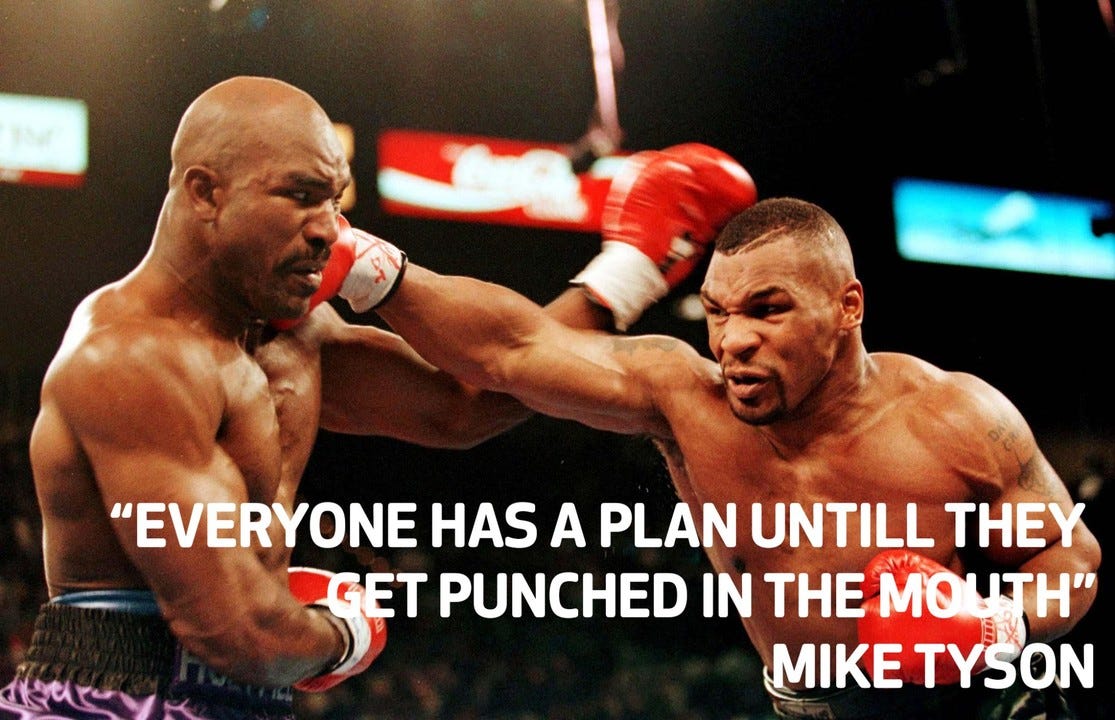Is Trump's Madison Square Garden Rally a Sign of the Apocalypse? & Dr. Phil Flushes His Reputation Down the MAGA Toilet
What I’m Discussing Today:
Kareem’s Daily Quote: Mythologist Joseph Campbell and pugilist Mike Tyson deliver an uppercut of wisdom.
Trump headlines Madison Square Garden rally after vulgar, racist remarks from allies: Conclusive evidence of Trump’s removal from reality is that he thought everything went well at this rally.
Dr. Phil Endorses Donald Trump At Madison Square Garden Rally: McGraw’s speech was pandering, misleading, and insulting.
Kareem’s Video Break: Friends like this is what life is all about.
School Asks Ted Cruz to Stop Using Image of Girls in Trans Attack Ads Without Permission: Last chance to get rid of this boil on the butt of Texas.
Kareem’s Kvetching Korner: Conservative panelist and Trump supporter Ryan Girdusky got booted from CNN for making a mock-threatening comment toward Muslim journalist Mehdi Hasan. His response afterward tells us why he should be banned from making responses.
No Comment Needed: This video shows how female snakes choose their mates. It is riveting and repulsive, but you will never forget it.
Henry Taylor & James Taylor Sing “You Can Close Your Eyes”: James Taylor harmonizes with his 20-year-old son and that makes me happy.
Kareem’s Daily Quote
We must be willing to get rid of the life we’ve planned, so as to have the life that is waiting for us.
Joseph Campbell, author The Hero with a Thousand Faces
This quote by comparative mythology and comparative religion professor Joseph Campbell requires an accompanying earthier quote by noted pugilist and philosopher, Mike Tyson, “Everyone has a plan until they get punched in the mouth.” Or the famous Yiddish quote, “Man plans. God laughs.” You get the drift. Plans are fine for starting a journey, but a traveler on the road of life needs to be flexible enough to modify and adapt or else they risk losing out on unplanned opportunities and joys.
In The Hero with a Thousand Faces, one of my favorite non-fiction books, Campbell lays out the similarities in stories told across cultures and eras, creating a template that explains how fictional adventures reflect our personal journeys in life. It’s fascinating stuff that offers deeper insight into our most treasured stories. The main point of the hero’s quest isn’t just to do heroic deeds, but to better understand themselves and choose their paths rather than have the paths be chosen for them.
Having a rigid life plan is comforting to some people—like having a to-do list where they can gleefully cross off completed tasks. Often that plan has been encouraged by loving parents who want their children to set goals and work toward them. Totally understandable. But it’s important to make the distinction between the parents’ plans and the child’s plans. Having children follow a plan that will make the parents happy doesn’t necessarily translate into happiness for the children. They may feel approval and stability, but not joy.
One of the most valuable qualities that made the Showtime Lakers so successful was our ability to pivot to a new plan when the old one wasn’t working. We were confident enough in our talents to let different players lead us down a new path when the one we were on was blocked. We improvised, we communicated, and we shared. We triumphed.
Since then, I’ve written a handful of novels and the process is very similar to life. I deliberately don’t outline for more than a few chapters ahead because in the writing I may have a better idea than I had originally planned. If I commit too much to an outline, I miss out on the potentially bolder, more original choice. Then the novel is less interesting.
Life is not a straight, paved path to happiness and fulfillment. In fact, the real fulfillment is in navigating the road, not in reaching the rest stop at the end. If you’re standing at the starting block and staring only at the finish line, you’ve already finished the race before you started.




